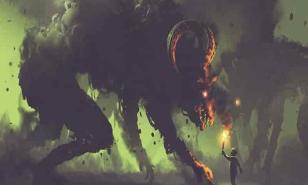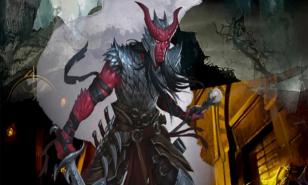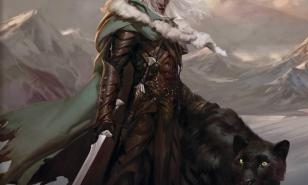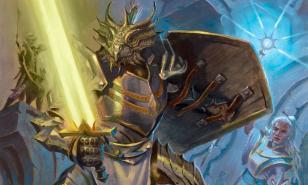[Top 5] D&D Ranger Multiclass Builds That Are Powerful
![[Top 5] D&D Ranger Multiclass Builds That Are Powerful D&D Best Ranger Builds](https://www.gamersdecide.com/sites/default/files/styles/news_images/public/top-5-dd-best-ranger-multiclass-builds-that-are-powerful-ranger1_1.jpg)
Tracking wild beasts through the feral wilderness, the Ranger hides and waits in the shadows as the apex predator of Dungeons & Dragons classes. However, the Ranger’s potential as a ranged powerhouse or up-close whirlwind is often underestimated. When built with the right multiclass combinations in mind, Rangers can easily overcome this poor perception and become one of the most powerful classes in the game.
Why Should You Multiclass a Ranger?
Rangers are often overshadowed by the Druid, the Rogue, and the Fighter. They excel in many of the same areas as all these classes, but never quite reach the same heights as them. For this reason, multiclassing can be a great way for the Ranger to carve out its own niche in a D&D party.
For example, while the Ranger is more survivable than a Rogue, they do not benefit from the higher AC of a Fighter. Multiclassing a Ranger with a Nature Cleric, however, gives them proficiency in Heavy Armor, allowing them to keep up with the Fighter more easily. By the same token, a Fey Wanderer Ranger multiclassed with a Circle of the Stars Druid allows them to more easily take advantage of their Wisdom stat and have a heavier emphasis on spellcasting than most other Ranger builds.
What Are the Advantages of Multiclassing?
Multiclassing has many advantages, as well as some drawbacks. To start with, multiclassing allows a character to synergize class features and create builds that are otherwise impossible. This allows a character to fill multiple party roles, which is especially useful in groups of only 2 or 3 players.
Multiclassing can also be used to expand the skill set of existing class features. For example, subclasses like the Arcane Trickster for the Rogue and Eldritch Knight for the Fighter can benefit from a Wizard multiclass, as those subclasses are heavily reliant on the Intelligence score which the Wizard also uses. This multiclass gives those subclasses, which traditionally have very limited spellcasting abilities, access to a larger spell list, more spell slots, and some class features that lend themselves to a more spellcasting-focused playstyle while still preserving their martial capabilities.
Multiclassing isn’t without its drawbacks, however. One of the biggest disadvantages of multiclassing is that it prevents characters from completely maxing out a class. A character can only gain 20 total levels. This means that if one takes 17 levels of one class and 3 levels of another, they will never achieve the powerful capstone feature granted by reaching level 20 in a single class.
Below, we outline some of the most powerful multiclass combinations for the Ranger class as well as the best level progression to ensure that players reach the most important levels in their build as fast as possible.
Be sure to use the Optional Class Features presented in Tasha’s Cauldron of Everything with your Ranger build, as they replace some of the Ranger’s most underpowered abilities and transform them into a true force to be reckoned with.
5. Fey Wanderer Ranger / Stars Druid
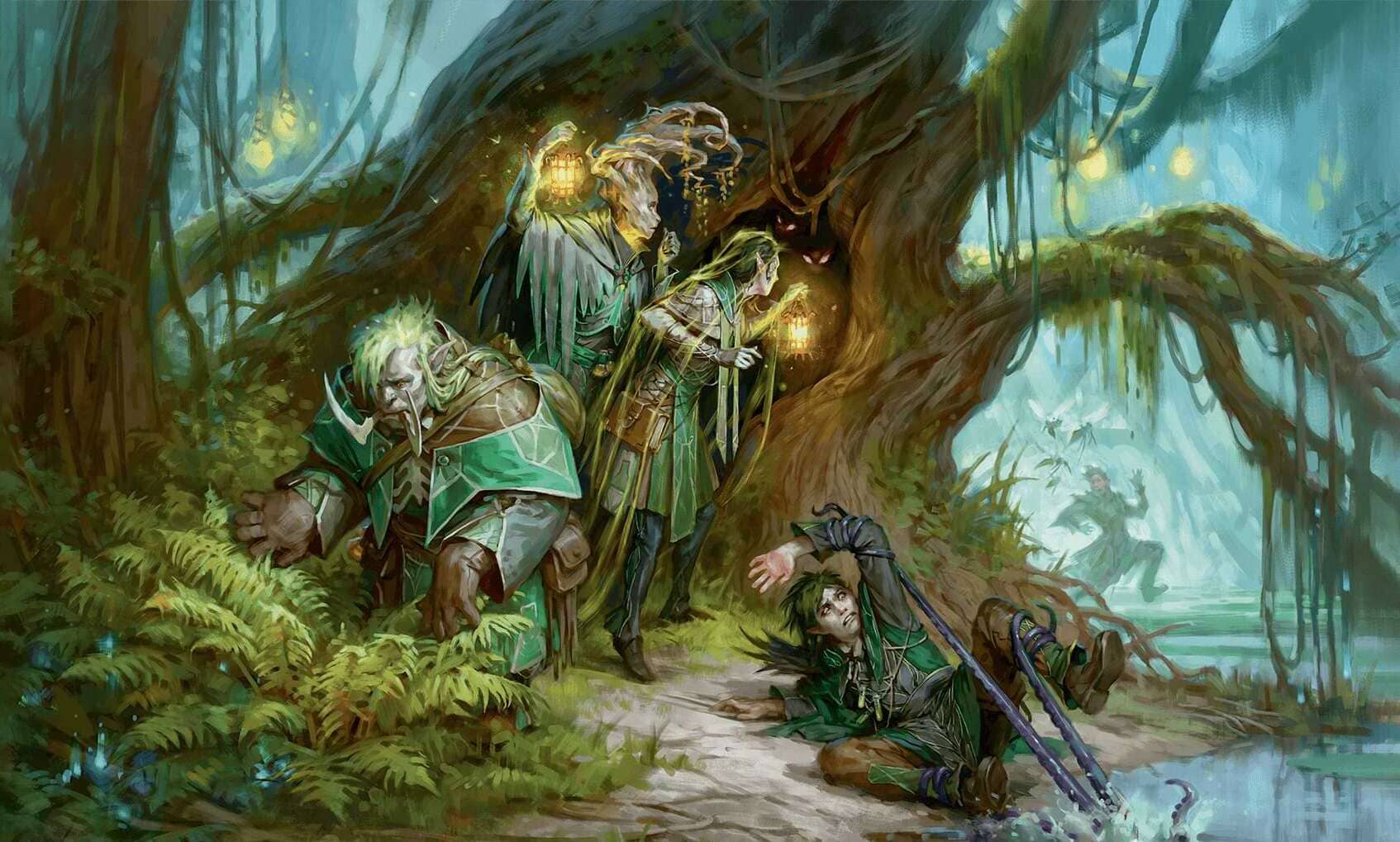
Terrorize your enemies with ancient magic and your trusty bow.
Do you want to play as a mysterious, shamanistic warrior, hurling bolts of radiant energy while smiting foes with your powerful longbow? If the answer is yes, this build is for you.
At its core, this build takes the spellcasting features of the Ranger and expands them with the Druid’s incredible spell list and other ways to use your Wisdom modifier, while still retaining the Ranger’s exceptional martial capabilities. Druid’s Wild Shape feature basically gives you an additional pool of hit points every time you transform, making you a tanky powerhouse at lower levels The Circle of Stars gives you Starry Form, offering new ways to use your Wild Shape once the HP benefit becomes less important in the mid and endgame.
Because this build has so much powerful spellcasting, it is also incredibly versatile. You can play the role of your party’s defender, getting up in the face of your enemies in the form of a bear or wolf, or hang in the backlines, supporting your party with spells and firing arrows from cover. This versatility makes this build incredibly enjoyable for those who aren’t quite sure what they want from their Ranger and want to explore a bit of everything.
So to sum-up, why is Fey Wanderer Ranger / Circle of Stars Druid so good?
- Extremely versatile spellcasting
- Powerful ranged foe
- Many uses from Wild Shape, making you either an efficient hunter or powerful tank
Build details:
For starters, you should take 3 levels of Ranger to get the Fey Wanderer subclass. After that, you can take two levels of Druid and pick the Circle of Stars subclass. Take Ranger for the next 15 levels to finish off the build.
Your ability score spread should look like this if you use Point Buy:
STR: 8
DEX: 16
CON: 16
INT: 8
WIS: 16
CHA: 8
Be sure to choose a longbow and the best light armor you can find for your gear.
Fey Wanderer Ranger 18 / Circle of Stars Druid 2
Ranger (Fey Wanderer) Levels:
Level 1 (Ranger 1) - Class Features: Deft Explorer (Canny: Gain Expertise in one of your proficiencies and learn 2 more languages); Favored Foe (Mark a foe when you hit it with a weapon attack to deal an extra 1d4 damage against it for 1 minute)
Level 2 (Ranger 2) - Class Features: Spellcasting; Fighting Style (Choose Archery)
Level 3 (Ranger 3) - Class Features: Ranger Archetype (Choose Fey Wanderer); Primal Aareness (Gain extra spells at certain levels that you can cast once per long rest without using a spell slot). Fey Wanderer Features: Dreadful Strikes (Deal extra psychic damage with your weapon attacks); Fey Wanderer Magic (Gain extra spells exclusive to the Fey Wanderer); Otherworldly Glamour (Gain a bonus to Charisma checks equal to your Wisdom modifier and an additional skill proficiency)
Level 6 (Ranger 4) - Class Feature: Ability Score Improvement (Increase Dexterity by 2)
Level 7 (Ranger 5) - Class Feature: Extra Attack (Make 2 attacks on your turn)
Level 8 (Ranger 6) - Class Features: Deft Explorer (Rover: Your walking speed increases by 5 feet and you gain a swimming and climbing speed equal to your walking speed); Favored Foe (1d6)
Level 9 (Ranger 7) - Fey Wanderer Features: Beguiling Twist (Gain advantage against being charmed or frightened, and force other creatures to make saving throws to avoid being charmed or frightened when a creature you can see succeeds its saving throw against those effects)
Level 10 (Ranger 8) - Class Features: Ability Score Improvement (Increase Dexterity by 2); Land’s Stride (Move through difficult terrain without a movement penalty and gain advantage on saving throws against magical plants created to impede movement)
Level 11 (Ranger 9) - Nothing
Level 12 (Ranger 10) - Class Features: Deft Explorer (Tireless: Give yourself a number of temporary hit points equal to 1d8 + your Wisdom modifier and lose 1 exhaustion level after a short rest); Nature’s Veil (Magically become Invisible for 1 minute)
Level 13 (Ranger 11) - Fey Wanderer Features: Fey Reinforcements (Learn the Summon Fey spell)
Level 14 (Ranger 12) - Class Feature: Ability Score Improvement (Increase Wisdom or Constitution by 2)
Level 15 (Ranger 13) - Nothing
Level 16 (Ranger 14) - Class Features: Favored Foe (1d8); Vanish (Use the Hide action as a Bonus Action)
Level 17 (Ranger 15) - Fey Wanderer Features: Misty Wanderer (Learn Misty Step and take another creature with you when you cast the spell)
Level 18 (Ranger 16) - Class Feature: Ability Score Improvement (Increase Wisdom or Constitution by 2, or choose a feat)
Level 19 (Ranger 17) - Nothing
Level 20 (Ranger 18) - Feral Senses (Your inability to see a creature does not impose disadvantage on attack rolls against it, and you can locate invisible creatures within 30 feet)
Druid (Stars) Levels:
Level 4 (Druid 1) - Class Features: Druidic (Learn the secret language of the Druids); Spellcasting
Level 5 (Druid 2) - Class Features: Wild Shape (Transform into beasts in combat); Druid Circle (Choose Circle of Stars). Circle of Stars Features: Star Map (Create a Star Map and gain certain benefits when holding it); Starry Form (Gain new uses for your Wild Shape)
4. Fey Wanderer Ranger / Nature Cleric
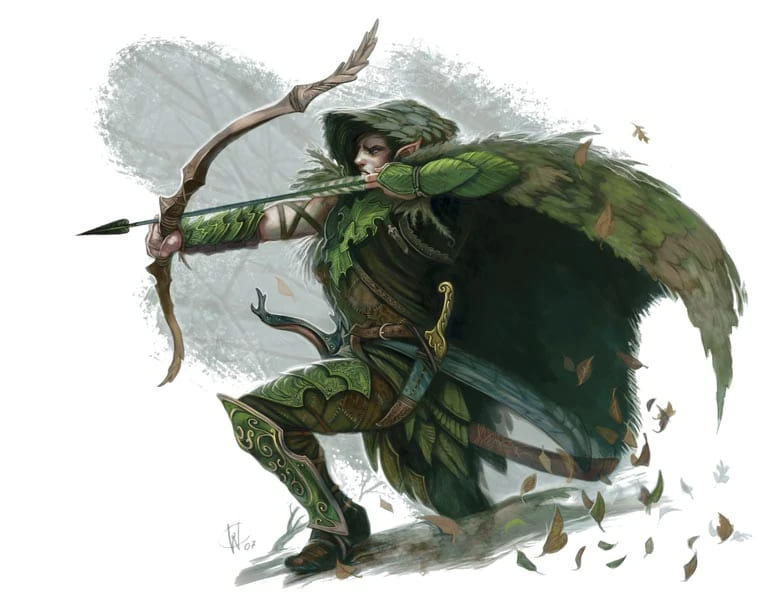
How can you lose when you have the gods on your side?
If you would like to play the ultimate woodland protector, this build is for you. The Fey Wanderer / Nature Cleric character places themself between their enemies and their allies, warding off any foes who dare to come too close with their magical staff and powerful magic.
This build takes the usually dexterous and nimble Ranger and gives them heavy armor and powerful spellcasting. With just a single level of Nature Cleric, you get incredibly powerful spellcasting, tanky armor and additional skill proficiencies. Since heavy armor requires high strength, this build forces the Ranger to take advantage of Shillelagh, a usually overlooked cantrip that allows them to use their Wisdom modifier for attacks rather than Strength or Dexterity.
Just like the previous build, this Ranger is incredibly versatile, with a large spell list and great damage and tanking potential. While the last build was more focused on damage-dealing, this one places an emphasis on making your character into a tanky powerhouse on the battlefield, defending your allies from the frontlines of combat. If that is the kind of playstyle you are interested in, this build is for you.
Why is Fey Wanderer Ranger / Nature Domain Cleric so good?
- Heavy armor proficiency makes you incredibly tanky when combined with the Ranger’s high hit dice
- Cleric spellcasting is very powerful and versatile
- Does not sacrifice damage, allowing you to do just as much damage in melee range as you would with a bow and arrow on a traditional Ranger build
Build details:
Take 1 level of Ranger before immediately switching to a level of Cleric and taking the Nature Domain subclass to get heavy armor proficiency as fast as possible. Finish off with 18 levels of Ranger, taking the Fey Wanderer subclass when available.
This build requires 13 DEX, 13 WIS, and 15 STR to take full advantage of the multiclassing and heavy armor requirements. However, your Strength only needs to be 13 until you find plate armor, which is generally pretty rare. At some point, you will want to increase your strength using one of your Ability Score Increases. For that reason, your ability score spread should look like this if you use point buy:
STR: 13
DEX: 13
CON: 16
INT: 8
WIS: 16
CHA: 8
Ranger (Fey Wanderer) 19 / Cleric (Nature) 1
Ranger (Fey Wanderer) Levels:
Level 1 (Ranger 1) - Class Features: Deft Explorer (Canny: Gain Expertise in one of your proficiencies and learn 2 more languages); Favored Foe (Mark a foe when you hit it with a weapon attack to deal an extra 1d4 damage against it for 1 minute)
Level 3 (Ranger 2) - Class Features: Spellcasting; Fighting Style (Choose Archery)
Level 4 (Ranger 3) - Class Features: Ranger Archetype (Choose Fey Wanderer); Primal Awareness (Gain extra spells at certain levels that you can cast once per long rest without using a spell slot). Fey Wanderer Features: Dreadful Strikes (Deal extra psychic damage with your weapon attacks); Fey Wanderer Magic (Gain extra spells exclusive to the Fey Wanderer); Otherworldly Glamour (Gain a bonus to Charisma checks equal to your Wisdom modifier and an additional skill proficiency)
Level 5 (Ranger 4) - Class Feature: Ability Score Improvement (Increase Strength by 2)
Level 6 (Ranger 5) - Class Feature: Extra Attack (Make 2 attacks on your turn)
Level 7 (Ranger 6) - Class Features: Deft Explorer (Rover: Your walking speed increases by 5 feet and you gain a swimming and climbing speed equal to your walking speed); Favored Foe (1d6)
Level 8 (Ranger 7) - Fey Wanderer Features: Beguiling Twist (Gain advantage against being charmed or frightened, and force other creatures to make saving throws to avoid being charmed or frightened when a creature you can see succeeds its saving throw against those effects)
Level 9 (Ranger 8) - Class Features: Ability Score Improvement (Increase Wisdom or Constitution by 2); Land’s Stride (Move through difficult terrain without a movement penalty and gain advantage on saving throws against magical plants created to impede movement)
Level 10 (Ranger 9) - Nothing
Level 11 (Ranger 10) - Class Features: Deft Explorer (Tireless: Give yourself a number of temporary hit points equal to 1d8 + your Wisdom modifier and lose 1 exhaustion level after a short rest); Nature’s Veil (Magically become Invisible for 1 minute)
Level 12 (Ranger 11) - Fey Wanderer Features: Fey Reinforcements (Learn the Summon Fey spell)
Level 13 (Ranger 12) - Class Feature: Ability Score Improvement (Increase Wisdom or Constitution by 2)
Level 14 (Ranger 13) - Nothing
Level 15 (Ranger 14) - Class Features: Favored Foe (1d8); Vanish (Use the Hide action as a Bonus Action)
Level 16 (Ranger 15) - Fey Wanderer Features: Misty Wanderer (Learn Misty Step and take another creature with you when you cast the spell)
Level 17 (Ranger 16) - Class Feature: Ability Score Improvement (Increase Wisdom or Constitution by 2, or choose a feat)
Level 18 (Ranger 17) - Nothing
Level 19 (Ranger 18) - Class Feature: Feral Senses (Your inability to see a creature does not impose disadvantage on attack rolls against it, and you can locate invisible creatures within 30 feet)
Level 20 (Ranger 19) - Class Feature: Ability Score Improvement (Increase Wisdom or Constitution by 2, or choose a feat)
Cleric (Nature Domain) Levels:
Level 2 (Cleric 1) - Class Features: Spellcasting; Divine Domain (Choose Nature). Nature Domain Features: Acolyst of Nature (Learn a Druid cantrip and an additional skill proficiency); Bonus Proficiencies (Gain heavy armor proficiency)
3. Beast Master Ranger / Peace Cleric
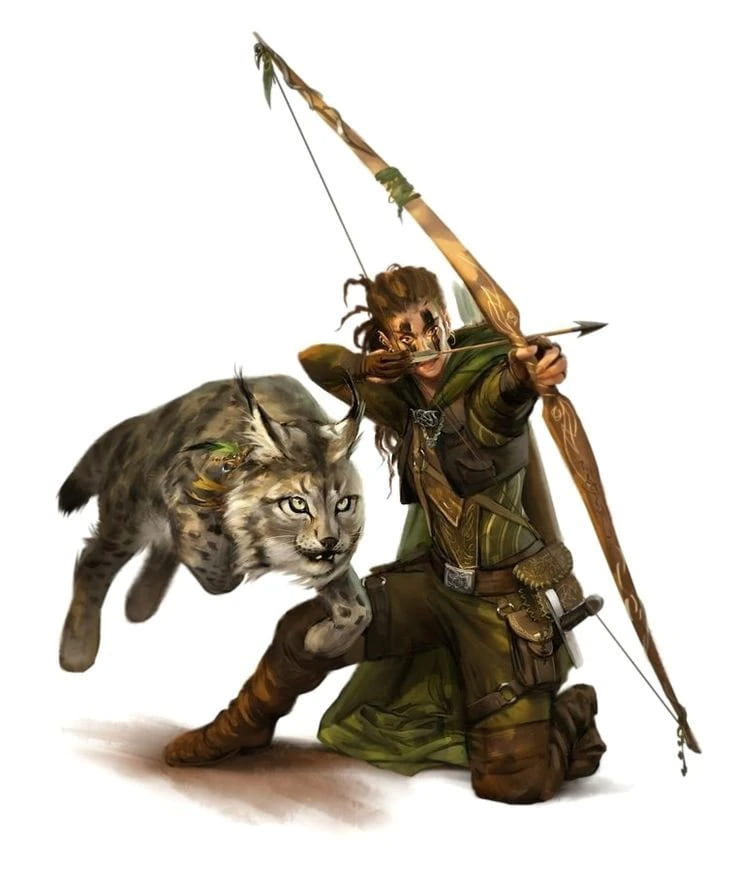
No one can stand against an archer and their kitty cat.
Wading through battle with a beast by their side, this build takes advantage of the Beast Master’s close bond with their animal spirit using the Peace Cleric’s Emboldening Bond feature. This makes this Ranger the go-to for those who want to have a deep bond with an animal companion on their adventures.
A single level of Peace Cleric grants this build access to possibly one of the most powerful features in D&D: Emboldening Bond. This allows you to form a bond with a certain number of creatures near you, granting all bonded creatures an additional 1d4 bonus to one attack roll, ability check, or saving throw per turn while they are within 30 feet of each other. This means you can use Emboldening Bond on your animal companion, giving you a near-permanent bonus averaging at +2.5 to one of your attack rolls every turn, and your animal companion gains the same bonus.
On top of this already incredibly strong buff, this build also gets access to the Cleric spell list and all of the versatility and power that comes with it, as well as additional Peace Domain spells and an extra skill proficiency.
This build is perfect for any player who loves the idea of adventuring alongside an animal friend, wading into battle with them and gaining immensely strong benefits as a result. This is probably one of the best builds in the game to fulfill that roleplaying fantasy, and with the new Beast Master changes presented in Tasha’s Cauldron of Everything, you don’t have to sacrifice any power to make it happen.
Why is Beast Master Ranger / Peace Domain Cleric so good?
- Incredible bonus to hit with Emboldening Bond
- Powerful and versatile spellcasting
- Powerful animal companion to fight alongside you using the Primal Companion presented in Tasha’s Cauldron of Everything
Build details:
For this build, start with taking 3 levels of Ranger and choosing the Beast Master subclass. Then dip into a level of Cleric and choose the Peace domain subclass. Finish off with another 16 levels of Ranger.
This build is reliant on using Tasha’s reworked Beast Master, using the Primal Companion rather than the Ranger’s Companion.
Be sure to use Tasha’s optional features to customize your racial ability score increases. This is what your ability score spread should look like if you use Point Buy:
STR: 8
DEX: 16
CON: 16
INT: 10
WIS: 14
CHA: 10
Ranger (Beast Master) 19 / Cleric (Peace) 1
Ranger (Beast Master) Levels:
Level 1 (Ranger 1) - Class Features: Deft Explorer (Canny: Gain Expertise in one of your proficiencies and learn 2 more languages); Favored Foe (Mark a foe when you hit it with a weapon attack to deal an extra 1d4 damage against it for 1 minute)
Level 2 (Ranger 2) - Class Features: Spellcasting; Fighting Style (Choose Archery)
Level 3 (Ranger 3) - Class Features: Ranger Archetype (Choose Beast Master); Primal Awareness (Gain extra spells at certain levels that you can cast once per long rest without using a spell slot). Beast Master Features: Primal Companion (Form a bond with a primal spirit that can take the form of an air, land, or sea creature and fight alongside you)
Level 5 (Ranger 4) - Class Feature: Ability Score Improvement (Increase Dexterity by 2)
Level 6 (Ranger 5) - Class Feature: Extra Attack (Make 2 attacks on your turn)
Level 7 (Ranger 6) - Class Features: Deft Explorer (Rover: Your walking speed increases by 5 feet and you gain a swimming and climbing speed equal to your walking speed); Favored Foe (1d6)
Level 8 (Ranger 7) - Beast Master Features: Exceptional Training (Command your beast to take the dash, disengage, and help actions, and its attacks count as magical for the purpose of overcoming resistance and immunity)
Level 9 (Ranger 8) - Class Features: Ability Score Improvement (Increase Dexterity by 2); Land’s Stride (Move through difficult terrain without a movement penalty and gain advantage on saving throws against magical plants created to impede movement)
Level 10 (Ranger 9) - Nothing
Level 11 (Ranger 10) - Class Features: Deft Explorer (Tireless: Give yourself a number of temporary hit points equal to 1d8 + your Wisdom modifier and lose 1 exhaustion level after a short rest); Nature’s Veil (Magically become Invisible for 1 minute)
Level 12 (Ranger 11) - Beast Master Feature: Bestial Fury (When your beast attacks it can do so twice, or take the multiattack option if available)
Level 13 (Ranger 12) - Class Feature: Ability Score Improvement (Increase Wisdom or Constitution by 2)
Level 14 (Ranger 13) - Nothing
Level 15 (Ranger 14) - Class Features: Favored Foe (1d8); Vanish (Use the Hide action as a Bonus Action)
Level 16 (Ranger 15) - Beast Master Features: Share Spells (Spells you cast that affect yourself also affect your primal companion)
Level 17 (Ranger 16) - Class Feature: Ability Score Improvement (Increase Wisdom or Constitution by 2, or choose a feat)
Level 18 (Ranger 17) - Nothing
Level 19 (Ranger 18) - Class Feature: Feral Senses (Your inability to see a creature does not impose disadvantage on attack rolls against it, and you can locate invisible creatures within 30 feet)
Level 20 (Ranger 19) - Class Feature: Ability Score Improvement (Increase Wisdom or Constitution by 2, or choose a feat)
Cleric (Peace Domain) Levels:
Level 4 (Cleric 1) - Class Features: Spellcasting; Divine Domain (Choose Peace Domain). Peace Domain Features: Domain Spells (Learn additional spells exclusive to the Peace Cleric); Implement of Peace (Gain an additional skill proficiency); Emboldening Bond (Create magical bonds with creatures near you, granting bonuses to certain rolls for all creatures affected, including you)
2. Gloom Stalker Ranger / Assassin Rogue
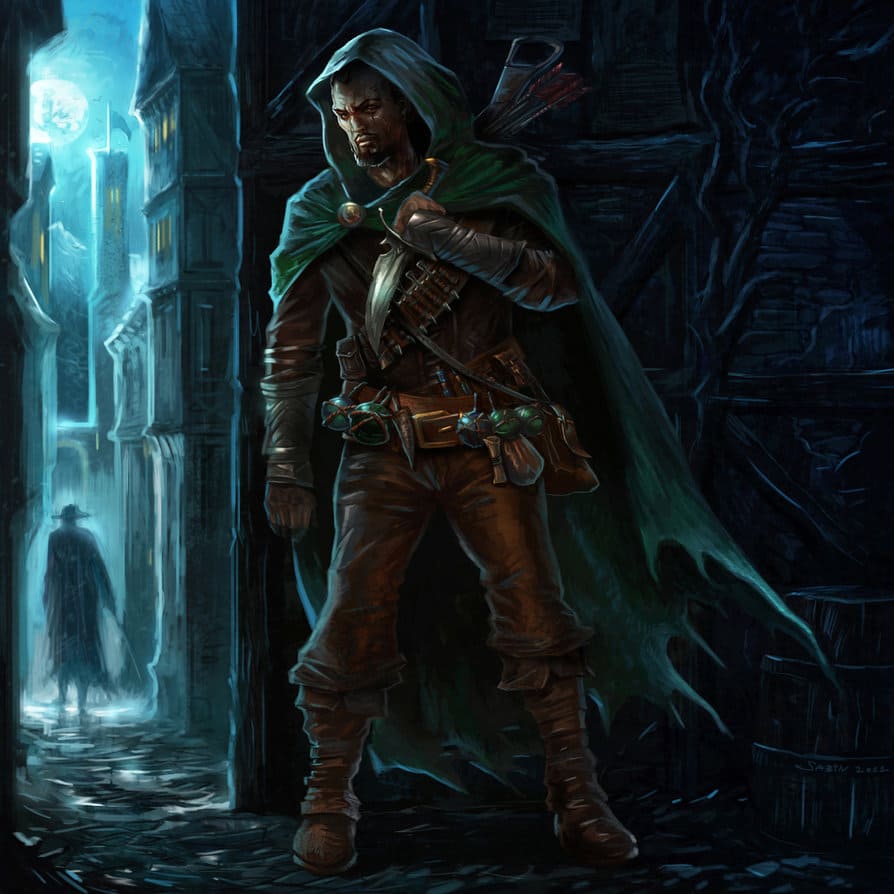
Can't fight what you can't see, can you?
With this build, you will be the ultimate umbral hunter. Assassinate your foes with dreadful accuracy, and rain down arrows before they even have the chance to react.
This is one of the most powerful Ranger multiclass builds.Taking 5 levels in Ranger grants you Extra Attack, giving you twice as many opportunities to trigger Sneak Attack. The Gloom Stalker’s emphasis on the first turn of combat and granting benefits related to it pairs perfectly with the Assassin, allowing you to dish out absolutely insane single-target damage in a single turn, before your enemies can do anything in return.
Taking levels of Ranger also grants you access to some rudimentary magic, giving you more options in combat and some extra damage.
This build is perfect for anyone who wants to strike down their enemies from afar, often without ever being seen. It lends itself well to ranged weaponry, allowing you to stay safe and out of danger.
Why is Assassin Rogue / Gloomstalker Ranger so good?
- Some of the best single-target damage potential in the game
- Added versatility from the Ranger’s spells
- Low chance of dying, since you will likely be hidden in most combat encounters
Build details:
This build can go in two directions. The one I recommend and what I outline below is to take 5 levels of Ranger, 3 levels of Rogue, and then finish off with 12 more levels of Ranger. This will get you the Ranger’s excellent weapon and armor proficiencies, and speedrun you to getting Extra Attack before dipping into Rogue for Cunning Action, Sneak Attack, and Assassinate.
The other option is to take 5 levels of Ranger and then 15 levels of Rogue. This option will get you more Sneak Attack damage and some extra Expertise options. However, it sacrifices much of the Ranger’s spellcasting ability and durability. Additionally, many of the Assassin’s subclass features are pretty bad, with Assassinate being the only one really worth your while. No matter which option you choose, be sure to use Tasha’s optional class features to replace all of the abysmal class features the Ranger gets in their first 10 or so levels.
With this build, Wisdom and Dexterity are your most important ability scores. Be sure to use Tasha’s optional features to replace your racial ability score increases. If you use Point Buy, your ability score spread should look like this:
STR: 8
CON: 16
DEX: 16
INT: 8
WIS: 16
CHA: 8
Ranger (Gloom Stalker) 17 / Rogue (Assassin) 3
Ranger (Gloom Stalker) Levels:
Level 1 (Ranger 1) - Class Features: Deft Explorer (Canny: Gain Expertise in one of your proficiencies and learn 2 more languages); Favored Foe (Mark a foe when you hit it with a weapon attack to deal an extra 1d4 damage against it for 1 minute)
Level 2 (Ranger 2) - Class Features: Spellcasting; Fighting Style (Choose Archery)
Level 3 (Ranger 3) - Class Features: Ranger Archetype (Choose Gloom Stalker); Primal Awareness (Gain extra spells at certain levels that you can cast once per long rest without using a spell slot). Gloom Stalker Features: Gloom Stalker Magic (Gain extra spells at certain levels); Dread Ambusher (Gain an extra 10 feet of movement and an extra attack that deals 1d8 extra damage on the first turn of combat); Umbral Sight (Gain Darkvision and become invisible when in darkness to any creature relying on Darkvision to see you)
Level 4 (Ranger 4) - Class Feature: Ability Score Improvement (Increase Dexterity by 2)
Level 5 (Ranger 5) - Class Feature: Extra Attack (Make 2 attacks on your turn)
Level 9 (Ranger 6) - Class Features: Deft Explorer (Rover: Your walking speed increases by 5 feet and you gain a swimming and climbing speed equal to your walking speed); Favored Foe (1d6)
Level 10 (Ranger 7) - Gloom Stalker Feature: Iron Mind (Gain proficiency in Wisdom Saving Throws)
Level 11 (Ranger 8) - Class Features: Ability Score Improvement (Increase Dexterity by 2); Land’s Stride (Move through difficult terrain without a movement penalty and gain advantage on saving throws against magical plants created to impede movement)
Level 12 (Ranger 9) - Nothing
Level 13 (Ranger 10) - Class Features: Deft Explorer (Tireless: Give yourself a number of temporary hit points equal to 1d8 + your Wisdom modifier and lose 1 exhaustion level after a short rest); Nature’s Veil (Magically become Invisible for 1 minute)
Level 14 (Ranger 11) - Gloom Stalker Feature: Stalker’s Flurry (When you miss with a weapon attack, you can make another as part of the same action)
Level 15 (Ranger 12) - Class Feature: Ability Score Improvement (Increase Wisdom or Constitution by 2)
Level 16 (Ranger 13) - Nothing
Level 17 (Ranger 14) - Class Features: Favored Foe (1d8); Vanish (Use the Hide action as a Bonus Action)
Level 18 (Ranger 15) - Gloom Stalker Feature: Shadowy Dodge (Use your reaction to impose disadvantage on an attack against you)
Level 19 (Ranger 16) - Class Feature: Ability Score Improvement (Increase Wisdom or Constitution (whichever you did not increase last time) by 2)
Level 20 (Ranger 17) - Nothing
Rogue (Assassin) Levels:
Level 6 (Rogue 1) - Class Features: Expertise (Choose 2 skills to gain double proficiency. I recommend Stealth and Persuasion); Sneak Attack (1d6); Thieves’ Cant
Level 7 (Rogue 2) - Class Feature: Cunning Action (Dash, Disengage, or Hide as Bonus Action)
Level 8 (Rogue 3) - Class Features: Roguish Archetype (Choose Assassin); Sneak Attack (3d6). Assassin Features: Bonus Proficiencies (Gain proficiency with the Disguise Kit and Poisoner’s Kit); Assassinate (Gain advantage on creatures that have not taken their first turn in combat and automatic critical hits against surprised creatures)
1. Gloom Stalker Ranger / Battlemaster Fighter
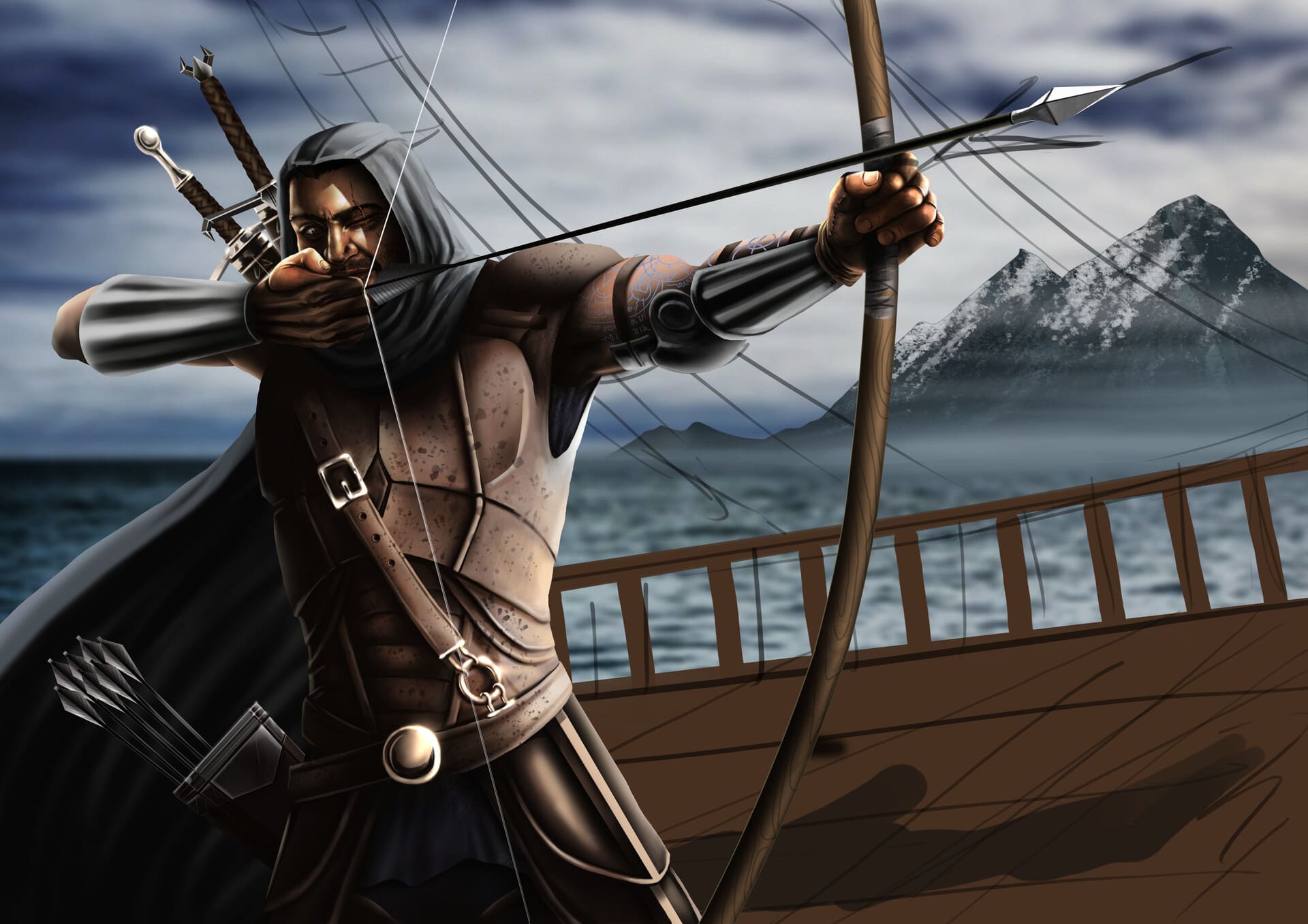
If they're dead before they can react, your enemies can never stand against you.
Stalking from the shadows, eliminating foes with a single well-placed missile hides the Gloom Stalker Ranger / Battlemaster Fighter build. With this character, you will become the master of ambushes, capable of dealing insane amounts of damage in just a few, highly accurate shots.
Combining the Gloom Stalker’s raw damage output with the Battlemaster’s sheer accuracy gives you, undoubtedly, the strongest Ranger multiclass build in Dungeons & Dragons. With Precision Strike and the archery fighting style, it will be nearly impossible to miss your shots. Combine that with the Gloom Stalker’s extra damage output in the first round of combat gives you a character that can eliminate enemies before the round even starts.
Since the Ranger and Fighter both have d10 hit die, this build is just as capable of tanking attacks in the middle of a battle as any other Fighter. However, the Ranger’s skill proficiencies and expertise also make it incredibly adept at a more stealthy approach. This, combined with the Ranger’s spellcasting, makes this build very versatile and enjoyable to play.
Why is Gloom Stalker Ranger / Battlemaster Fighter so good?
- High damage output with multiple attacks and Action Surge
- Some versatility from the Ranger’s spellcasting
- High HP
- Amazing stealth capabilities
Build details:
To begin, take 3 levels of Ranger and the Gloom Stalker subclass. Then, take your 3 Fighter levels and the Battlemaster subclass. Finish off with 14 more levels of Ranger.
This build requires Dexterity, Wisdom, and Constitution to be effective. If you use Point Buy, your ability scores should look like this:
STR: 8
DEX: 16
CON: 16
INT: 10
WIS: 14
CHA: 10
Ranger (Gloom Stalker) 17 / Fighter (Battlemaster) 3
Ranger (Gloom Stalker) Levels:
Level 1 (Ranger 1) - Class Features: Deft Explorer (Canny: Gain Expertise in one of your proficiencies and learn 2 more languages); Favored Foe (Mark a foe when you hit it with a weapon attack to deal an extra 1d4 damage against it for 1 minute)
Level 2 (Ranger 2) - Class Features: Spellcasting; Fighting Style (Choose Archery)
Level 3 (Ranger 3) - Class Features: Ranger Archetype (Choose Gloom Stalker); Primal Awareness (Gain extra spells at certain levels that you can cast once per long rest without using a spell slot). Gloom Stalker Features: Gloom Stalker Magic (Gain extra spells at certain levels); Dread Ambusher (Gain an extra 10 feet of movement and an extra attack that deals 1d8 extra damage on the first turn of combat); Umbral Sight (Gain Darkvision and become invisible when in darkness to any creature relying on Darkvision to see you)
Level 7 (Ranger 4) - Class Feature: Ability Score Improvement (Increase Dexterity by 2)
Level 8 (Ranger 5) - Class Feature: Extra Attack (Make 2 attacks on your turn)
Level 9 (Ranger 6) - Class Features: Deft Explorer (Rover: Your walking speed increases by 5 feet and you gain a swimming and climbing speed equal to your walking speed); Favored Foe (1d6)
Level 10 (Ranger 7) - Gloom Stalker Feature: Iron Mind (Gain proficiency in Wisdom Saving Throws)
Level 11 (Ranger 8) - Class Features: Ability Score Improvement (Increase Dexterity by 2); Land’s Stride (Move through difficult terrain without a movement penalty and gain advantage on saving throws against magical plants created to impede movement)
Level 12 (Ranger 9) - Nothing
Level 13 (Ranger 10) - Class Features: Deft Explorer (Tireless: Give yourself a number of temporary hit points equal to 1d8 + your Wisdom modifier and lose 1 exhaustion level after a short rest); Nature’s Veil (Magically become Invisible for 1 minute)
Level 14 (Ranger 11) - Gloom Stalker Feature: Stalker’s Flurry (When you miss with a weapon attack, you can make another as part of the same action)
Level 15 (Ranger 12) - Class Feature: Ability Score Improvement (Increase Wisdom or Constitution by 2)
Level 16 (Ranger 13) - Nothing
Level 17 (Ranger 14) - Class Features: Favored Foe (1d8); Vanish (Use the Hide action as a Bonus Action)
Level 18 (Ranger 15) - Gloom Stalker Feature: Shadowy Dodge (Use your reaction to impose disadvantage on an attack against you)
Level 19 (Ranger 16) - Class Feature: Ability Score Improvement (Increase Wisdom or Constitution (whichever you did not increase last time) by 2)
Level 20 (Ranger 17) - Nothing
Fighter (Battlemaster) Levels:
Level 1 (Fighter 1) - Class Features: Second Wind (Heal a small amount of HP as a bonus action); Fighting Style (Choose archery)
Level 2 (Fighter 2) - Class Features: Action Surge (Once per long rest, gain an additional action on your turn)
Level 3 (Fighter 3) - Class Features: Martial Archetype (Choose Battlemaster). Battlemaster Features: Combat Superiority (Learn Maneuvers you can use in combat using Superiority Dice); Student of War (Gain proficiency with one set of Artisan’s tools)
Articles you may be interested in:
- Log in or register to post comments
 Home
Home PC Game Trailers
PC Game Trailers News
News Menu
Menu


![[Top 5] D&D Best Sorcerer Multiclass Builds That Are Powerful D&D Best Sorcerer Builds](https://www.gamersdecide.com/sites/default/files/styles/308x185-scale-crop--more-top-stories/public/top-5-dd-best-sorcerer-multiclass-builds-that-are-powerful-titlejpg.png)


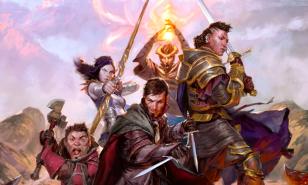
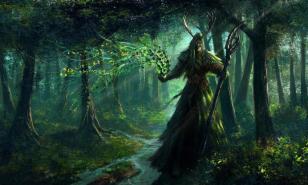
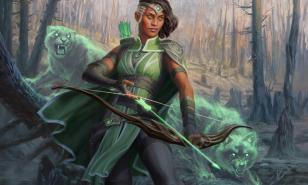
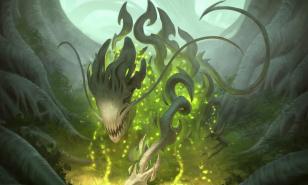
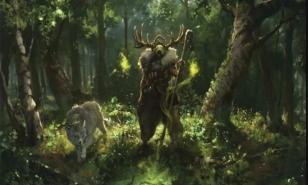
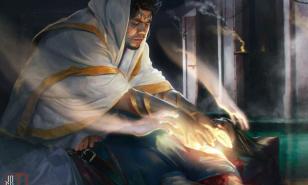
![[Top 20] D&D Best Barbarian Items, Armor and Weapons D&D Best Barbarian Items, Armor and Weapons](https://www.gamersdecide.com/sites/default/files/styles/308x185-scale-crop--more-top-stories/public/4._top-20-dnd-best-barbarian-items-weapons-and-armor-headline_1.jpg)


![[Top 3] D&D Best Druid Subclasses To Play](https://www.gamersdecide.com/sites/default/files/styles/308x185-scale-crop--more-top-stories/public/top_3_dd_best_druid_subclasses_to_play_1.jpg)

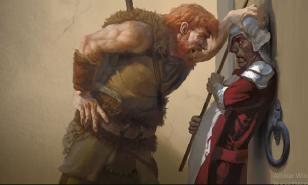

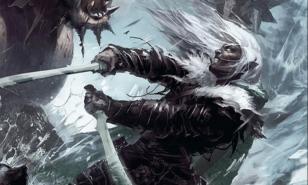

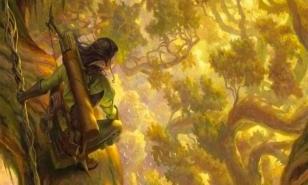
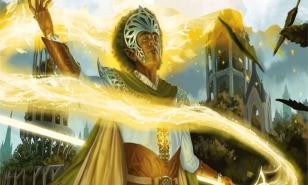
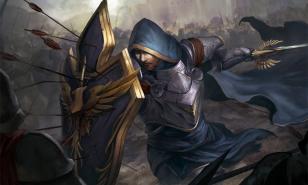

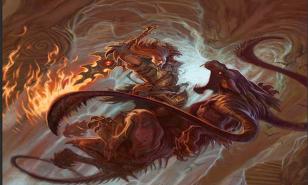
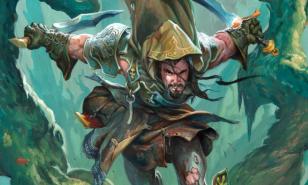

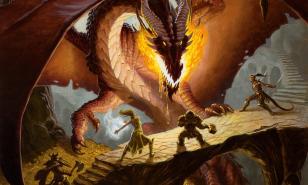


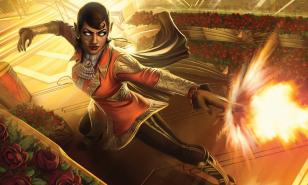
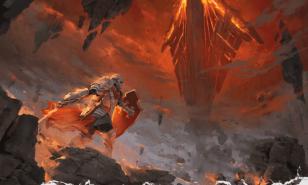
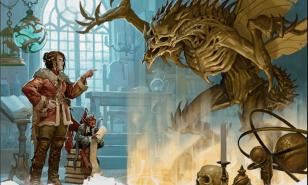

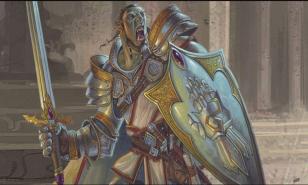


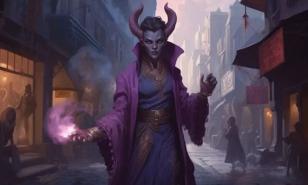
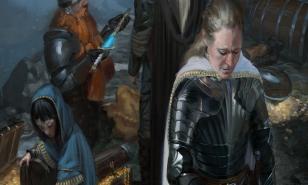


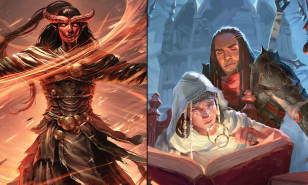
![[Top 5] D&D Best Rogue Multiclass Builds That Are Powerful D&D Best Rogue Builds](https://www.gamersdecide.com/sites/default/files/styles/308x185-scale-crop--more-top-stories/public/top_5_dd_rogue_multiclass_builds_that_are_powerful_rogue_1.jpg)
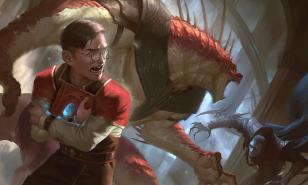
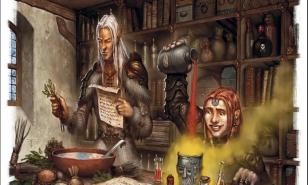
![[Top 5] D&D Best Archer Builds That Are Powerful D&D Best Archer Builds](https://www.gamersdecide.com/sites/default/files/styles/308x185-scale-crop--more-top-stories/public/top-5-dd-best-archer-builds-that-are-powerful-archer1.jpg)
